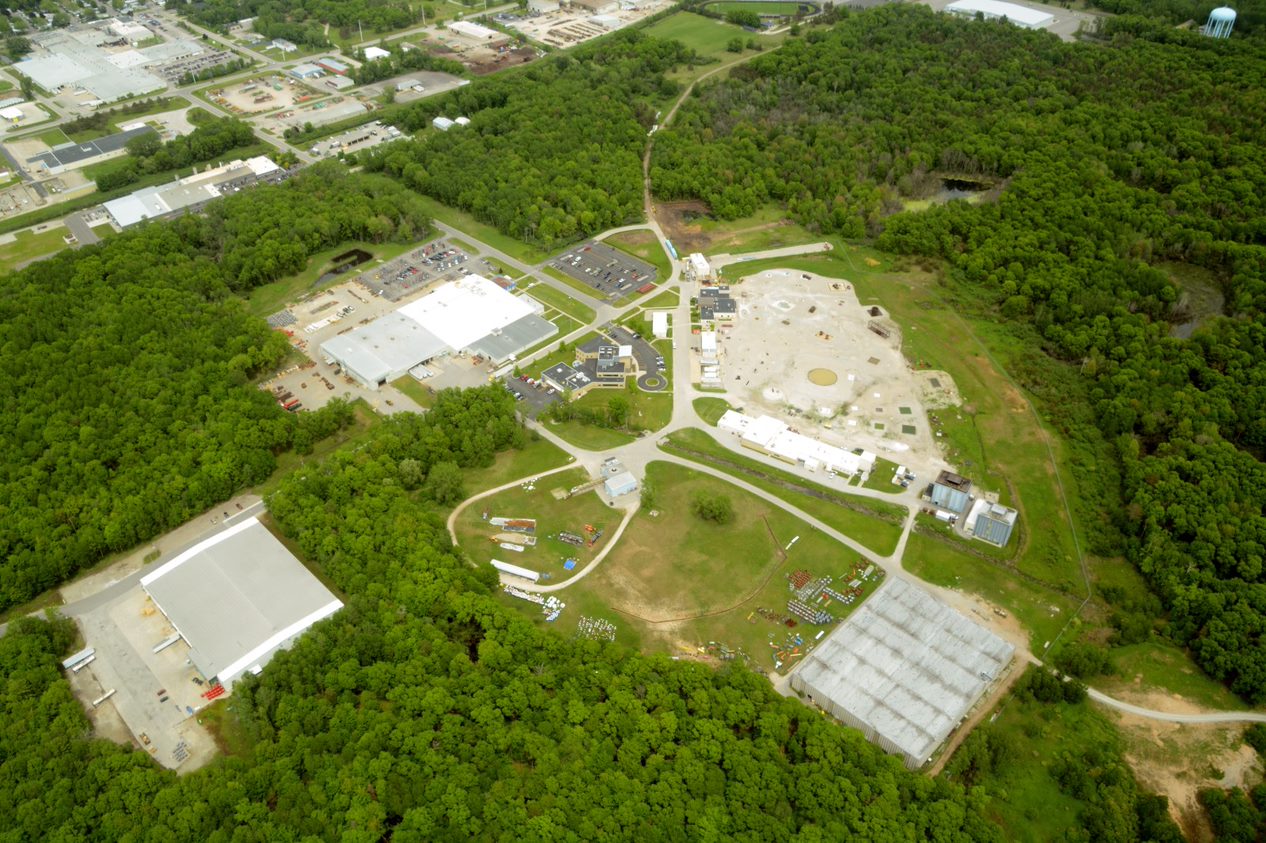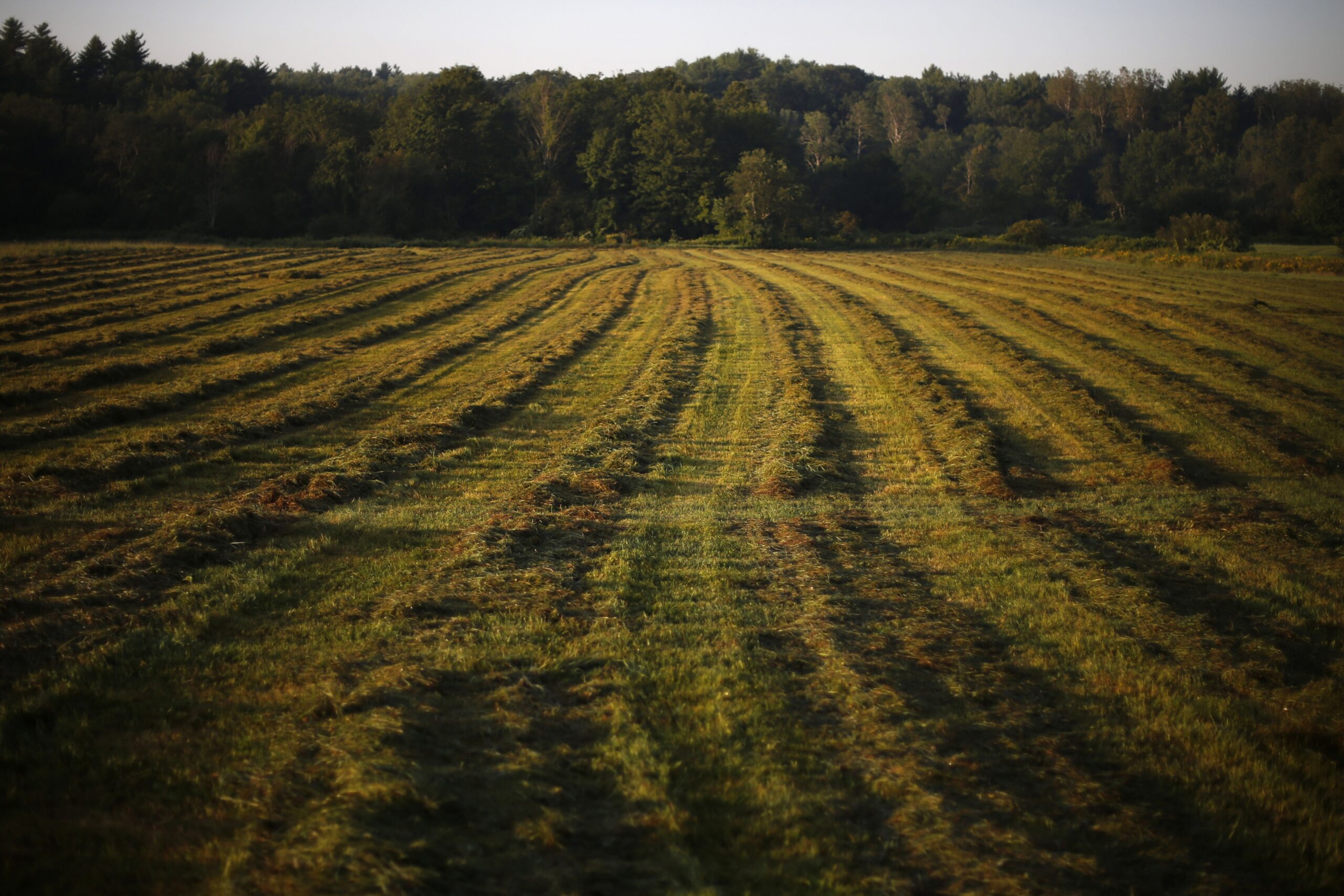The head of the Wisconsin Department of Natural Resources says additional scientists included under the next budget will examine chemicals known as PFAS near places where firefighting foam has been located, including the Marinette and Peshtigo areas.
The agency recently expanded the scope of its investigation into chemical contamination there related to the Tyco Fire Products’ fire training center.
DNR Secretary Preston Cole said the agency will hire two positions in the coming months to focus on identifying per- and polyfluoroalkyl substances (PFAS) in groundwater and surface water. The budget also includes $200,000 from the state’s environmental fund to create a model to identify areas of likely contamination and survey fire departments about the use of firefighting foam.
News with a little more humanity
WPR’s “Wisconsin Today” newsletter keeps you connected to the state you love without feeling overwhelmed. No paywall. No agenda. No corporate filter.
PFAS are often referred to as “forever chemicals” because they last a long time in the environment. Concerns have risen over the chemicals in drinking water because they’ve been linked to cancer and other health problems.
The chemicals are found in firefighting foam and other products like nonstick cookware.
In an interview with WPR, Cole said research on groundwater in places like Peshtigo and Marinette will be the highest priority.
“Because, quite frankly, we have people there that are on bottled water and their groundwater and their wells are already in jeopardy,” he said.
The agency considers Tyco’s training center to be the largest contributor of PFAS contamination in the Marinette and Peshtigo areas.
As first reported by the Milwaukee Journal Sentinel, the DNR recently sent a letter to Johnson Controls International, Tyco’s parent company, directing them to test more private wells and soil on farmland in the area for PFAS, said Darsi Foss, administrator of the DNR’s environmental management division.
“We also asked them to submit a plan to look at the fields where they had the city of Marinette spread biosolids that may have PFAS in them and come to us with a proposal on how to address those — probably in phases,” said Foss.
The DNR said wastewater from the fire training center was received by Marinette’s wastewater treatment plant. The city informed the agency that significant amounts of PFAS were found on biosolids sludge that had been spread on surrounding fields.
The DNR has also asked the company to conduct sampling in the Menominee and Peshtigo rivers because of runoff-associated fields that accepted the material for spreading.
John Perkins, vice president of environmental health and safety for Johnson Controls, said they’re reviewing the agency’s request and adding their own.
“We’ve asked for any information the DNR may have on their review of other potential sources within the city of Marinette,” said Perkins.
Johnson Controls sent a letter to the DNR detailing that it believed other sources existed because the city found PFAS contamination in all five of the treatment plant’s intake lines, but the training facility only has access to three of those lines.
The DNR has also identified ChemDesign Products, Inc. as another responsible party related to contamination in the case.
Foss said PFAS may not be coming from just one source, but they tend to work with the company that has the highest concentration of contamination.
Johnson Controls has sampled 168 private wells and 58 have tested positive for PFAS, according to figures provided by the DNR. Of those, 16 wells exceed the U.S. Environmental Protection Agency’s health advisory limit of 70 parts per million in drinking water. There are 29 wells that exceed the Wisconsin Department of Health Services recommended groundwater standard of 20 parts per trillion.
The company said it’s been providing bottled water to 125 residents since November 2017 and installed over 38 water treatment systems at homes with elevated levels of PFAS.
“Our number one priority, and has been, is to ensure that we provide a permanent solution to drinking water to the affected residents,” said Perkins.
Johnson Controls has said it would install a municipal water line from the city of Marinette to the Town of Peshtigo. But, town officials have asked the company to consider deep water wells as alternative water source, as well as a water line from the city of Peshtigo. Perkins said they don’t feel those options are viable. He added examining other alternatives may delay implementation of a line until 2021 because an engineering analysis would need to be executed.
However, Foss said the DNR is just asking the company to take information it has already collected on potential options and present them to the public for consideration.
The DNR referred Johnson Controls to the Wisconsin Department of Justice for civil prosecution in June, alleging the company failed to promptly notify the agency of any release of chemicals when first discovered in 2013. The company said they had no indication that chemicals had migrated offsite.
The DNR has asked the company to submit a work plan for the additional sampling by early September.
Wisconsin Public Radio, © Copyright 2026, Board of Regents of the University of Wisconsin System and Wisconsin Educational Communications Board.







